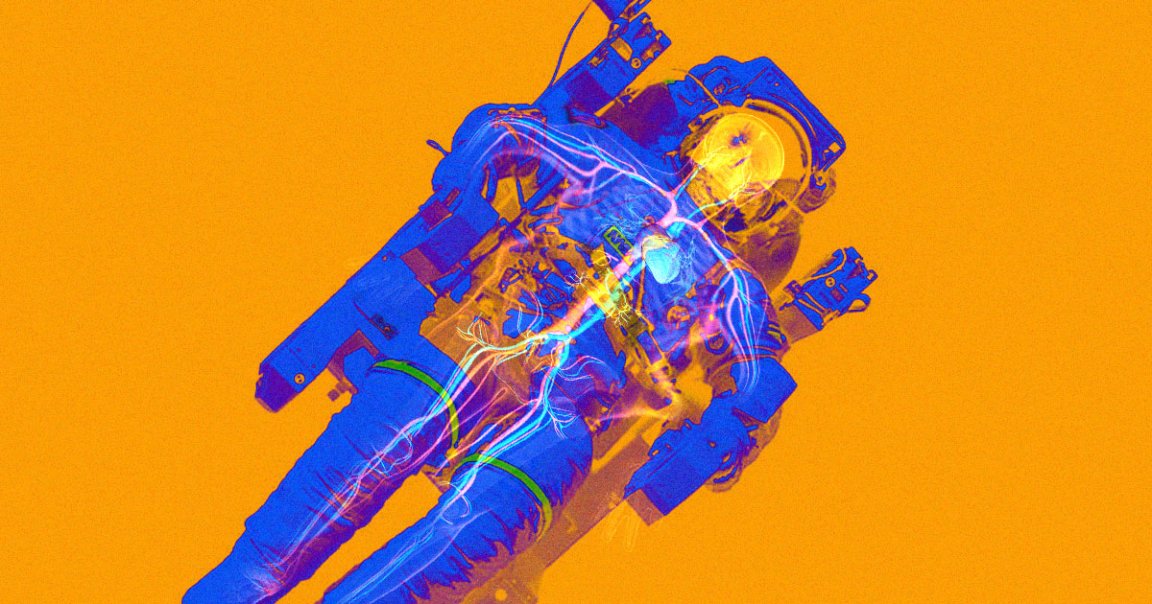
Vein Attraction
Astronauts aboard the International Space Station can now add “biometric technician” to their resumes.
In a blog post about the comings and goings aboard the ISS, NASA noted that two of its astronauts, along with another from the European Space Agency, gave each other eye and vein scans this week, with the assistance of “doctors on the ground monitoring in real time.”
Gathered inside the cylindrical Columbus laboratory module, NASA flight engineers Mark Vande Hei and Thomas Marshburn were joined by the German astronaut Matthias Maurer for a fun gathering in which they attached an ultrasound imaging device to each others’ neck, shoulder, and leg veins, along with eye scans. The idea, NASA said, was to help doctors “understand how living in microgravity affects the human body.”
Watch This Space
NASA has for the past few years been getting deeper into the biometrics game, from spinning off a sensor watch that tracks wearers’ vital signs to filing patents for biometric technology geared towards identity verification that can be used by both astronauts and military personnel alike.
Via the agency’s Technology Transfer Program, businesses are able to buy and license NASA-developed tech, and in 2020 the agency’s biometric research gained some buzz amid reports of its “HeartbeatID” device, which could reportedly turn a person’s heartbeat into a password. That tech, still seemingly patent-only, could according to NASA have applications in everything from banking to national security.
By comparison, the eye and vein scans aboard the ISS seem pretty mild — but it is curious to consider the possibilities NASA, or the businesses and agencies that license with it, are considering when it comes to biometric data.
READ MORE: Vein, Eye Scans as Russian Cargo Mission Orbits Toward Station [NASA]
More on biometrics: Scientists Working on Toilet That Identifies You By Your Butthole